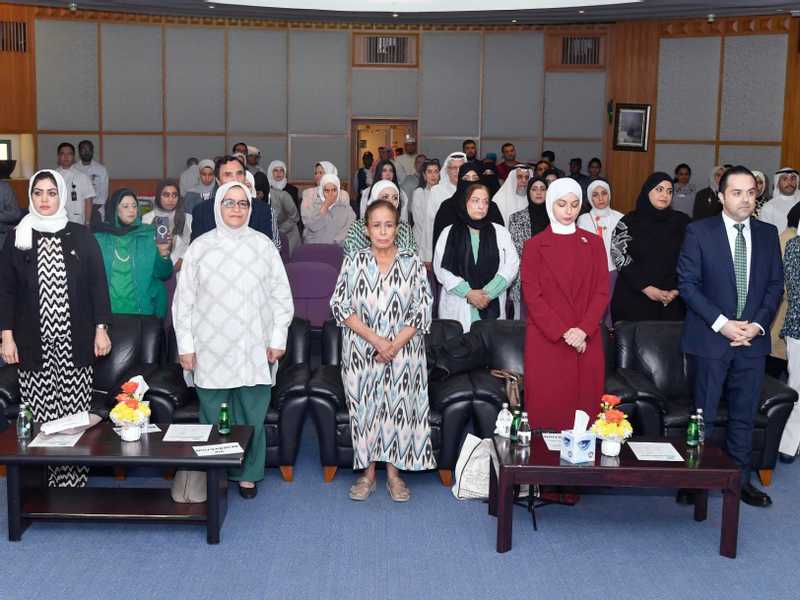Ministry of Health urges shift in perception of mental illness
During Kuwait’s celebration of World Mental Health Day, the ministry pointed out that recent attitudes towards mental illness have been marked by a degree of reservation.

• Dr. Abdullah Al-Sind, the Ministry of Health’s spokesman, noted that societal stigma hinders many patients from reintegrating into society and receiving timely treatment. Such celebrations aim to promote awareness and understanding of mental health issues.
• Depression is the most common mental health issue globally, affecting more than 300 million people worldwide.
• Mental illness impacts not only patients but also their families and society, with global economic losses estimated at trillions of dollars annually.
The Ministry of Health emphasized the importance of changing society’s misconceptions about mental illness, pointing out that recent attitudes towards these conditions have been marked by a degree of reservation, according to Al Qabas newspaper.
This statement was made during Kuwait’s celebration of World Mental Health Day, which took place on Thursday. This year, the World Health Organization (WHO) honors the day under the slogan “Mental Health in the Workplace,” emphasizing the essential link between mental health and work.
Dr. Abdullah Al-Sind, the ministry’s spokesman, stated in his speech during the celebration held at the Kuwait Center for Mental Health that one of the goals of World Mental Health Day is to confront and overcome the societal stigma associated with psychological and mental illnesses and disorders.
Al-Sind pointed out that societal stigma has caused many patients to struggle to regain their roles in society, as they are often viewed as different from others. This stigma can also prevent individuals from receiving timely treatment from the right specialists. Such celebrations aim to promote awareness and understanding of mental health issues.
Challenges persist for health systems
He noted that mental illnesses and disorders have become significant challenges for the international community and health systems. He explained that depression is the most common mental health issue globally, affecting more than 300 million people worldwide.
He added that the impact of mental illness extends not only to the patient’s life but also to their family and society. “If we consider the global economic losses resulting from the millions suffering from this disease, it is estimated at trillions of dollars a year.”
264 million people suffer from anxiety globally
Al-Sind stated that about 264 million people worldwide suffer from anxiety, noting the remarkable development in treatments for these conditions over the past years, alongside an increased level of awareness among individuals and communities.
He highlighted the role of the Kuwait Center for Mental Health, not only in treatment but also at the preventive level, adding that the health system does not wait for problems to arise before addressing them. He mentioned that there is a mental health clinic in each public hospital and a primary mental health clinic in 70 out of 120 primary health care centers.
Healthy work environment promotes productivity and creativity
For her part, Dr. Kholoud Al-Ali, the director of the Kuwait Center for Mental Health, stated that a safe and healthy work environment serves as a preventive factor for mental health and promotes productivity and creativity.
Al-Ali explained that unhealthy conditions can significantly impact mental health, quality of life, and productivity. These include stigma, excellence pressures, excessive workloads, monotonous routines, insufficient staffing, unclear job roles, inadequate health and safety policies, lack of job security, and poor investment in career development.
She continued, “Since 60 percent of the world is engaged in work, it is essential to take clear actions and implement strategies that create a work environment ensuring the prevention of mental health risks. This involves providing protection and support by harnessing efforts and investing resources in evidence-based approaches and interventions that enable everyone to thrive at work.”
Psychological well-being
She pointed out that mental health at work refers to the balance between various factors, including the work itself, the organization’s regulations, the individual, and the coping methods that enable a person to handle difficult situations.
She indicated that strategies to promote health in the workplace require creating mental health awareness through educational resources and workshops. This includes encouraging effective communication, fostering a culture of open dialogue, building positive relationships among colleagues, and establishing a policy or guide for mental health in work environments.
Al-Ali said that although governments and employers have the primary responsibility to protect and promote mental health in the workplace, “individuals can also take steps to support their psychological well-being by learning stress management techniques, continuing to teach, developing skills, exploring new knowledge, and participating in outdoor and social activities.”












